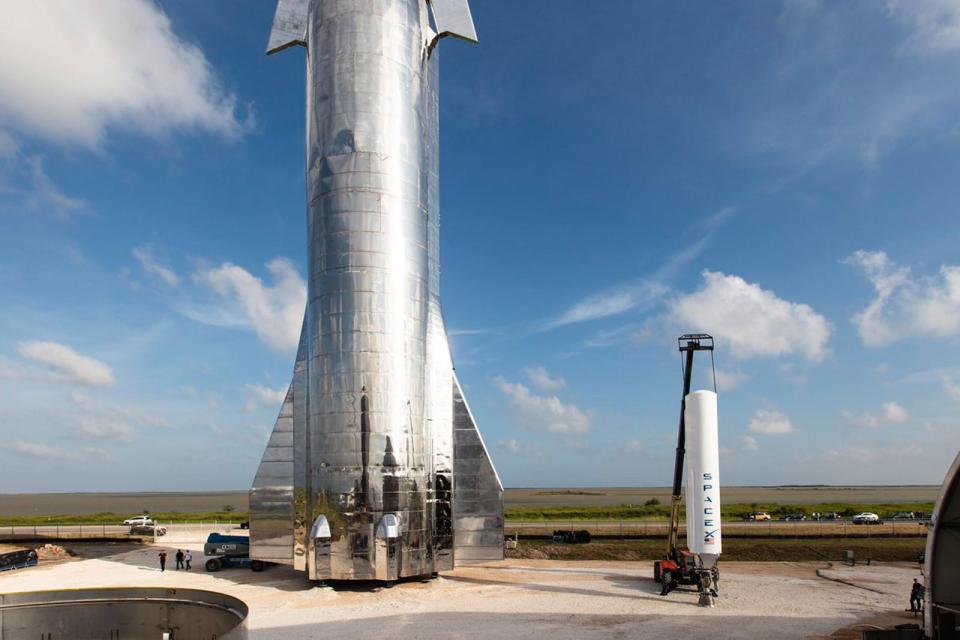Elon Musk hopes SpaceX's Starship will reach orbit in six months
He'd even like to see a crewed flight within a year.
Elon Musk's ambitious plans for Starship extend to the timeline for its first flights. As part of a Q&A session at SpaceX's presentation, Musk outlined plans for rapid prototyping that could get the vessel into space in a short time frame. Starship Mk1 (above) at Boca Chica, Texas should have a suborbital test flight within one to two months, the executive said.
After that, a competing team in Cape Canaveral, Florida will conduct a similar test with a Mk2 ship as soon as November. Mk3 will start construction in October with aims to fly in December, while the competing Mk4 could come in January. If all goes well, either Mk3 or an eventual Mk5 would fly an orbital test within six months -- no small achievement when Starhopper only flew in August.
Production for the Super Heavy booster won't start until Mk4 is complete, Musk added.
Despite that, crewed flight might come sooner than you think. SpaceX wants to pursue heavy reusability, to the extent that one Starship could fly "three or four times a day" while the booster could fly "20 times." That could help it prove the feasibility of the technology quickly and put people on rockets as soon as 2020. SpaceX had previously aimed for commercial service by 2021 and its lunar tourist trip by 2023, and those goals would be more realistic with humans flying a year earlier.
Of course, there's a lot that needs to go smoothly for this to happen, including an "exponentially" improved manufacturing process that, among other things, will use near-seamless rings of steel for the chassis instead of numerous welded plates. Musk is well-known for optimistic predictions, including his original hope that Falcon Heavy would fly in 2013. Don't be surprised if there are delays. SpaceX has advanced considerably since its early days, though, and it's evident that Musk doesn't want Starship to spend years in testing limbo.


